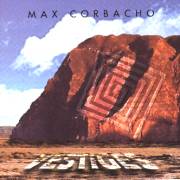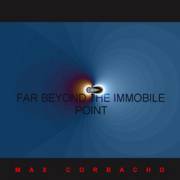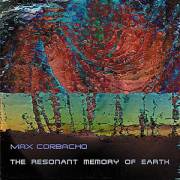"I began to get interested in music since I was very young, but it was listening to old records by bands from the 1970's when I felt the need to create. On the whole, all the artists in that era fascinated me, from the legendary Pink Floyd to the most metallic Led Zeppelyn of their first years. I started in Rock bands as a guitarist... till in the early 1990's I abandoned everything so as to create electronic music."
Which is the process you usually follow to create a musical piece?
 "I don't have a definite "method", yet I certainly have experienced an evolution. Nowadays I use the sequencer less than I used to, I intend my themes to become freer with respect to their rhythm and tempo. Right now I divide my time into creating acoustic loops from outdoor recordings and in the studio, and the creation of rhythmic computer-generated grooves, and I then coverall that with layers of synthesizers and it receives the final treatment."
"I don't have a definite "method", yet I certainly have experienced an evolution. Nowadays I use the sequencer less than I used to, I intend my themes to become freer with respect to their rhythm and tempo. Right now I divide my time into creating acoustic loops from outdoor recordings and in the studio, and the creation of rhythmic computer-generated grooves, and I then coverall that with layers of synthesizers and it receives the final treatment."Do you consider yourself to be linked to a given musical label in particular? Do you feel or have you ever felt influenced by other musicians in your artistic task?
"Certainly, yet I rather feel I am related to a current, rather than to a given label. Obviously, the influence of such musicians as Vidna Obmana, Robert Rich or Steve Roach is undeniable in my work, and therefore I feel quite close to all the American ambient space scenery,as well as its European representation with such people as Alio Die, Mattias Grassow, Amir Baghiri, Temps Perdu, etc."
Which are your sources for inspiration when composing?
 "Basically my travels, outings and excursions to places where I feel myself far from civilization: I was born and spent the early years of my childhood in a small "cortijo", a typical country household, in the province of Badajoz, and later I spent every summer there during the following years. Somehow my subconscious always wants to return to that place, and I continuously look for places far away from noise to spend my free time, to photograph them and somehow capture threir atmosphere."
"Basically my travels, outings and excursions to places where I feel myself far from civilization: I was born and spent the early years of my childhood in a small "cortijo", a typical country household, in the province of Badajoz, and later I spent every summer there during the following years. Somehow my subconscious always wants to return to that place, and I continuously look for places far away from noise to spend my free time, to photograph them and somehow capture threir atmosphere."Can you comment on what role Umberto Eco's literature played in your album "Far Beyond The Immobile Point"? What did you want to express in this album?
"It was the first chapter what wholly captivated me. The poetic vision of the universe Eco describes,
and the vision of the pendulum the main character has, as he imagines how strings hold it stretching into infinity, up to a remote place the imagines as the "immobile point", the place where it is anchored, and around which the entire universe revolves, inspired me profoundly."
What led you to compose "The Resonant Memory of Earth"? Did you propose to create a work related to Earth from the beginning?
"Yes, in "The Resonant....." I finish some paths I started in "Vestiges", and plan it as an analysis of my feelings, my sensations at the moment of finding myself in some lost place in the midsrt of nature. Actually, it is a question I meditate on, wondering why many people like myself pick this call, poetically referred to as "the resonating memory of Earth·, whereas others never have this need in all of their lives. I also need to contribute somehow to making many people aware as they do not realise the harm they do to the natural environment."
 "Bruno and I are preparing a CD together, that's right. We have connected very well at a personal level, and we have just had a vacation together with our respective wives in the south of Spain. We have the project of giving concerts jointly in the near future and it even is possible that we create our own label. With respect to his musical style, I believe there are several surprises in store for his fans, and some of the traits that were suggested in "Suite Patagonia", such as the taste for ambiences and atmospheric music, are going to get a thoroughly important role in his future works."
"Bruno and I are preparing a CD together, that's right. We have connected very well at a personal level, and we have just had a vacation together with our respective wives in the south of Spain. We have the project of giving concerts jointly in the near future and it even is possible that we create our own label. With respect to his musical style, I believe there are several surprises in store for his fans, and some of the traits that were suggested in "Suite Patagonia", such as the taste for ambiences and atmospheric music, are going to get a thoroughly important role in his future works."